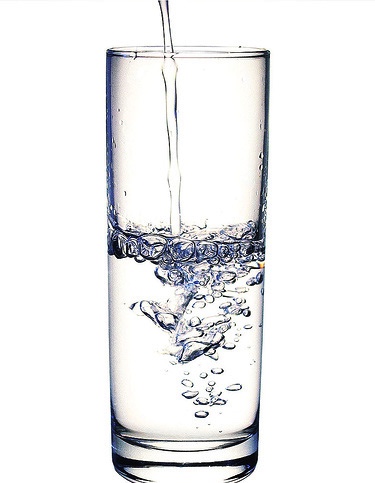HYDRATION
Most people would agree that nothing quenches thirst better than a tall glass of cold water. However in today’s fast paced world many of us are not getting the water that we so desperately need. Some feel inconvenienced by frequent urination and avoid drinking it all together while others simply forget to drink the necessary amount. Whatever the reason, drinking more water should become an important part of your daily routine because of its many amazing benefits.
WHY IS WATER SO IMPORTANT?
Water is made up of nothing more than two molecules of hydrogen gas and one molecule of oxygen. It has no specific color, flavor, or smell. It seems like a relatively simple liquid, yet water is needed for just about every function that goes on within our bodies. Water is a major part of our saliva, stool and urine, and also acts as a cushion and lubricator for the brain as well as joint tissue. It sends nutrients to our cells and carries waste away from them. Water also keeps the body at a healthy temperature by helping to create sweat. Even our blood, muscles, and bones are made from large amounts of water.
Studies show that drinking more water can help battle fatigue, improve concentration, promote healthy kidney function, and even lose weight. Drinking extra water each day while dieting will maximize the amount of fat shed in your total weight loss according to the American College of Sports Medicine. Water can also help maintain well-balanced muscle tone and even prevent some sagging of the skin, which can often happen after a significant weight loss. Best of all, water is even believed to act as an appetite suppressant and help boost the body’s metabolism.
So how much water should you be drinking each day? During an average day, the body loses and needs to replace two to three quarts of water daily. That’s roughly equal to eight, eight ounce glasses each day. There is an ongoing debate as to whether or not we should actually take in that much, since some of that fluid can be replaced by the food that we eat. However most researchers agree that increasing water intake will still improve health by keeping us from becoming dehydrated.
This is especially important when we exercise. As you begin to sweat more, water must be replaced or the body will begin to take water from its own tissues, including those within the brain and skin. This can lead to headaches as well as dry skin.

SIGNS OF DEHYDRATION
According to the Journal of the American Medical Association, signs that you may be dehydrated include:
-
Dry lips and tongue
-
Sunken eyes
-
Infrequent urination
-
Low energy
-
Feeling weak or light-headed
The color of your urine can also be used as a guide to tell if you are dehydrated. Urine should not be dark in color, unless you are taking B vitamins, which naturally turn urine a bright yellow color. If urine is light yellow and you nd yourself running o to the bathroom often, you are probably getting enough water.
Remember, coffee, tea, and sodas which contain caffeine can often prompt the body to get rid of water. It’s a good idea to limit the amount you drink or drink extra water to make up for the loss.
TIPS FOR STAYING HYDRATED
- Don’t wait until you are thirsty to drink. By the time you feel the urge to take a drink you may have already lost two or more cups of water.
- Make it convenient. Carry a water bottle with you throughout the day.
- If you work in an office, visit the water cooler more often instead of reaching for the coffee pot.
- Keep a water bottle handy during exercise and take frequent water breaks.
- The body loses water while you sleep. A good way to make up for this loss is to make a habit of drinking a glass of water before bed and after you wake up.
- If you pass a drinking fountain, make a habit of stopping to take a drink.Drinking throughout the day, instead of taking several gulps at once, not only meets your body’s needs better but may also curb the desire to urinate too often.
Common colds and u can often lead to dehydration. When you’re feeling under the weather it is a good idea to keep a bottle of water next to the bed. Water can also help the kidneys and liver to process medicines more effectively.